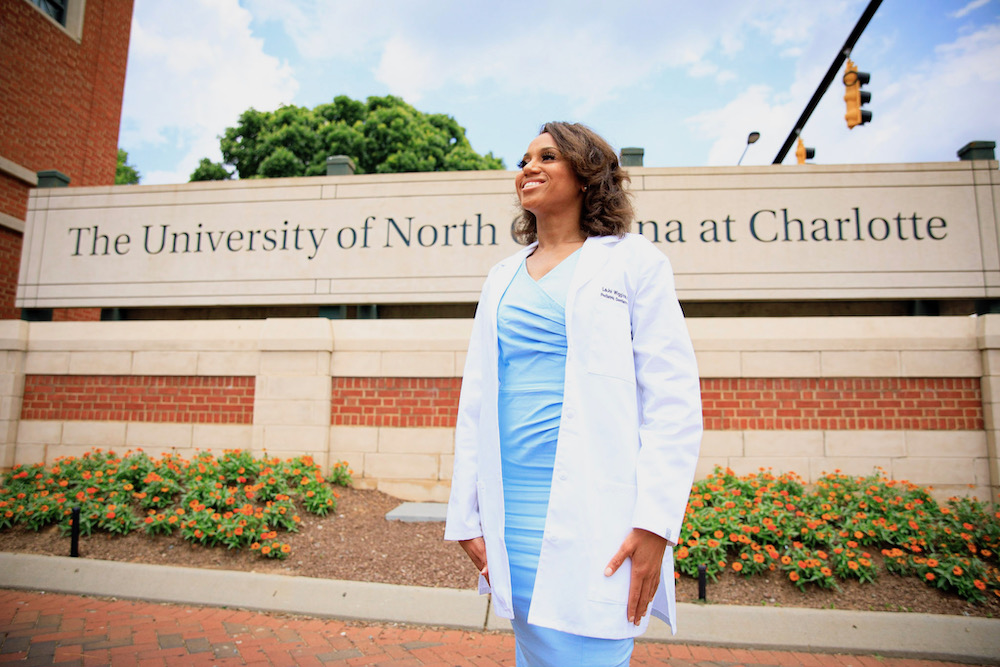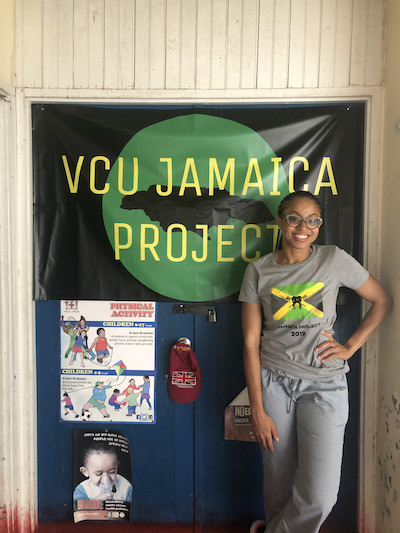Q&A: Dr. LaJoi Wiggins on what it means to be a Black dentist

For pediatric dentist, Dr. LaJoi Wiggins, dentistry wasn’t exactly on her radar when it came to choosing a career for herself. In fact, growing up, she had her sights set on becoming aveterinarian. However, after participating in various internships and doing her own research, she soon learned that it wasn’t the field for her. Thankfully, due to North Carolina being the home of many health science programs, she was able to find and fall in love with dentistry, and as they say, “The rest is history.”
Here, the New Dentist News spoke with Dr. Wiggins to learn more about her dental career, Black representation in the field, howshe navigates adversity, and what it means to be a Black dentist.
NDN: What influenced your decision to go into dentistry?
Dr. Wiggins: I’ve always had a love for science, and tried many different things in my life. After realizing that I didn’t want to become a veterinarian, I attended a conference through the AHEC program here in North Carolina, andthat was when I discovered dentistry. Of course, when you're going through life and experience a lot of different challenges in school, you can start to feel discouraged. So I started to think about other career choices, such as being a lab tech or doing research in the biomedical field, but nothing made me happy. It wasn’t until I revisited dentistry that I fell in love with it all over again. And I'm so glad I did.
NDN: What does it mean for you to be Black and working in this field? Also, what are you doing to influence the next generation of Black dentists?
Dr. Wiggins: I am just so elated to just be a part of the 4% [of Black dentists] , and there’s even less being a specialist. So I’m honored to just be a part of that. It means everything to me. And I think the reason why it means so much to me is because it means so much to my patients. In dental school, we had to attend different conferences because they wanted us to be involved in organized dentistry. After this one seminar, I approached the speaker and asked how he became so good, and he handed me this rock that said, “It’s not about me.” And he told me to keep it. From that moment to now, I didn’t know why that stuck with me. But I just realized that me being a dentist is not about me, it's about the people who are looking at me. It's about the people who saw me struggle in dental school or undergrad.
A lot of them are just so proud because they saw how hard I worked. So it encourages them that even though some days will look dark, and some may look a little discouraging, to keep pushing forward, because if I did it, they know that they can do it too. And that's what being a dentist or being in the position that I am in means to me. It’s me having the ability to motivate other people to encourage them that although they may have a low moment, it’s not the end. Also, that being delayed doesn't mean being denied, and I just love that so much.
As far as increasing numbers in our field. I do my best. I do my best to make sure that I'm a positive representative first, to make sure that not only the things that I say aregreat but also my actions. So whenever I get an opportunity to mentor a young person, I'm always reaching out. Whenever I’m able, I’m always connecting people. I just do whatever I can to help them get to where they need to be.I think what’s so fortunate about me is that, for some reason, God just aligned the right people in my path. That even if I didn't have the answers, I knew exactly where I could go to get them. And I just want to pay it forward. So whenever someone comes to me, or if I see someone who's struggling with something, I'm always trying to put myself in a position to help. And I think just positioning myself and being helpful is going to help increase those numbers.

NDN: As a female Black dentist, what adversity have you faced, if any? And how did you navigate it?
Dr. Wiggins: Oh that’s every day. And sadly, it’s sometimes from my own people. I can walk into the room, and my badge clearly says my name, and still get questioned on whether or not I’m the doctor. Or I often hear remarks about how young I look. And what I have found is the only thing I can do, is to be myself, proficient and competent.
I'm not here to prove that I'm qualified, because I know that I'm qualified. I'm here to provide good dental care. And if that’s what the patient wants, then that is what I am going to give them. However, if they’re going to insult me or try to make me feel less than, then it’s obvious that I am not the person for them, and I am perfectly okay with that. But what I'm not going to do is sit there tolerate that.
I've been in cases where a white man would walk in the room and receive the ultimate respect, but I barely get any eye contact. Before, I used to be really offended by that but then had to learn that that's not my issue, it’s theirs. That's not for me to take that home. I can't take home, someone not thinking I deserve to be a dentist. That's not my responsibility. The only thing I can do is just be the best version of myself and hope that it changes their opinion, of not only me but other people who look like me.
NDN: What do you think that the future holds for Black dentists? Do you see an influx of Black dentists or the numbers staying where they are?
Dr. Wiggins: Yes, I do. Especially with social media, the number has increased since before, I was even applying. People can see themselves in other people, and with there being all of these minority professional pages people can see that and feel like they can do it too. And I think that because of that, you now have this connection with people to reachout and talk to.
NDN: What advice would you give to the next generation of Black dentists?
Dr. Wiggins: I would just say to be themselves completely. That was something that I struggled with in the beginning. Coming into this field, I thought the only way to be successful was to act and be like my Caucasian counterparts. And I was still unqualified, because of my skin color. It was at that moment that I realized, I might as well be who I want to be because I’m going to face adversity either way. I think having that experience so early in my career has made me free to be who I want to be. And because of that, I actually connect a lot more with people and my patients.



